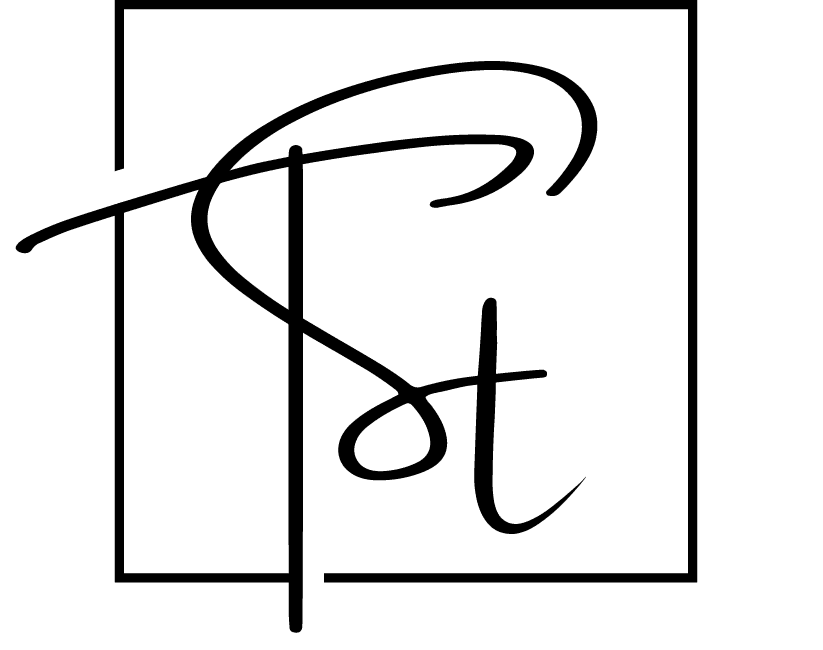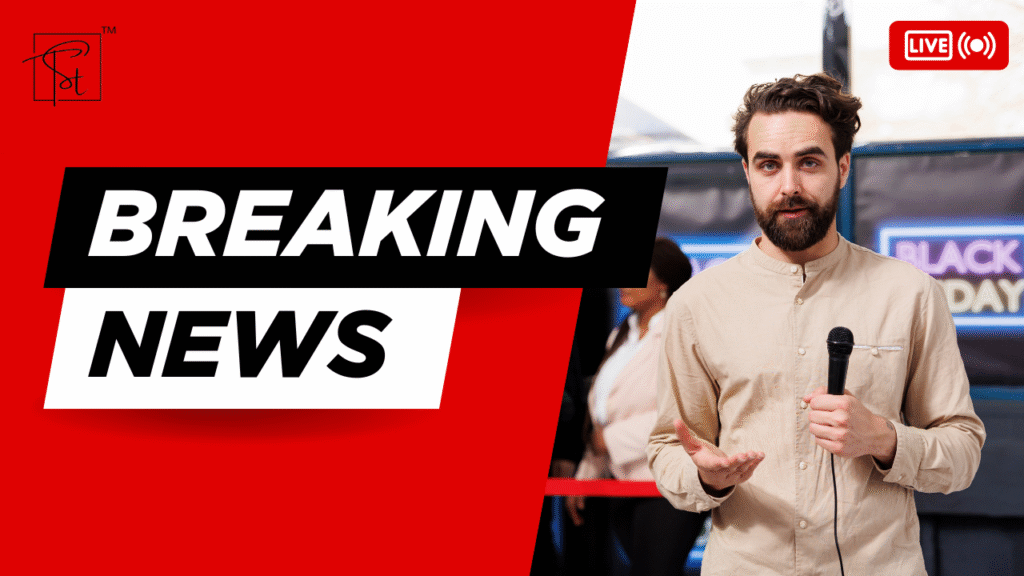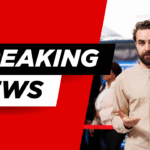French Election Turmoil Sparks Uncertainty Amid Historic Political Shift
France has always been known for its iconic landmarks, rich history, and strong political influence in Europe. But in the last 24 hours, things have taken a sudden—and unexpected—turn. A wave of political chaos is shaking up the French government as the country dives headfirst into one of the most unpredictable election seasons in recent history.
If you’re wondering what’s really going on and why the world should care, keep reading. We’re breaking down the unfolding drama in simple, everyday terms—no political jargon, no confusion—just the facts, explained like we’re talking over coffee.
What’s Happening in France Right Now?
In short, France is going through serious political turmoil. An early parliamentary election call by President Emmanuel Macron has thrown the country into chaos. Why? Because the move came just after his party—the centrist Renaissance—suffered a major defeat in the European Parliament elections. And the big winner? The far-right party, National Rally.
Let’s break it down:
- President Macron dissolved parliament just one year after forming his last government.
- Far-right forces surged in popularity, making them the current frontrunners.
- French citizens are divided and unsure who truly represents their interests anymore.
That’s shaken not just the French government—but the whole of Europe. Why? Because what’s happening in France tends to ripple through the rest of the EU.
Why Macron Called for a Snap Election
Think of this like a reboot: when things aren’t working, you press the restart button. That’s what Macron tried to do by calling a “snap election”. Only, it may have backfired.
After seeing his party lose major ground, Macron wanted to rebuild confidence. But by doing so, he opened the door for rival parties to campaign fiercely. Many see it as a gamble—some even call it a political “Hail Mary.”
Macron’s Calculated Risk
Macron likely thought people would rally behind him as a centrist leader in uncertain times. Instead, the opposite happened. The far-right saw this as their chance to push forward, and the left-wing parties began regrouping fast. The center? Well, it’s now looking smaller than ever.
Who Are the Key Players in This Election Drama?
Let’s introduce the major characters in this real-life political thriller.
- Emmanuel Macron: The current president, leader of the centrist Renaissance party.
- Marine Le Pen: Head of the far-right party National Rally, surging in popularity.
- Jordan Bardella: The young face of the National Rally, poised to be the next Prime Minister if they win.
- La France Insoumise & Socialist Parties: Key players on the left, now attempting to form a united front to block the far-right.
It’s like watching a season finale where each political party is competing for the last rose—but with way more at stake.
What’s the Deal With the Far Right’s Surge?
If you’re asking why France’s far right is suddenly gaining so much traction, you’re not alone.
Here’s why voters are swinging toward the right:
- Immigration concerns: Many French citizens feel overwhelmed by immigration and want stronger border policies.
- Economic anxiety: Inflation, job insecurity, and a rising cost of living have people craving change.
- Anti-establishment vibes: People are frustrated with the status quo and feel unheard by the traditional parties.
The far right is capitalizing on this frustration—and let’s face it, fear—and presenting themselves as a “voice of the people.” Whether that’s true or just clever marketing is still up for debate, but it’s clearly resonating.
The Left’s Last-Minute Alliance: Can It Work?
On the other side of the fence, France’s left-wing parties are scrambling to join forces. They’re calling it a “New Popular Front” — borrowing the name from an anti-fascist alliance from the 1930s.
But here’s the thing—forming a unified political alliance in just a couple of weeks is like assembling IKEA furniture during a power outage. Possible? Maybe. Easy? Not at all.
The left wants to:
- Ban far-right ideology from taking power
- Support more inclusive immigration policies
- Boost public services, like healthcare and education
Will they succeed? That depends on how well their different leaders can agree—on everything from economic policies to how to campaign effectively with very little time left.
What’s at Stake for France – and the World?
This is more than just another election. It’s a major turning point for French—and European—politics.
Here’s why the world is watching:
- France is one of the EU’s biggest political and economic powers. Any instability there impacts the whole European Union.
- It’s a nuclear power and a key NATO member. Political shifts could influence international security policy.
- It could change how Europe handles immigration, climate policy, and more.
Think of France as a major steering wheel on the gigantic ship that is Europe. When it turns sharply, everyone on board feels it.
What French Citizens Are Saying
We spoke to several French citizens, and their opinions varied widely:
“I feel like my vote doesn’t matter anymore. Nothing changes,” said Léa, 26, a graduate student from Lyon.
“We need stronger leadership. I’m tired of feeling unsafe,” said Marc, 48, a small business owner in Marseille.
This mix of apathy, fear, and hope is what defines today’s French voter sentiment. Many are looking for change, but it depends on what “change” means to them individually.
The Role of Social Media in the Election Turmoil
Let’s not ignore how social media is fueling the fire. Over the past 24 hours, hashtags like #FrenchElections, #MacronResign, and #StopTheFarRight were all trending on Twitter (now X), Reddit, and TikTok.
Memes are flying. Videos are going viral. And political influencers—on both sides—are using platforms to swing public opinion like never before.
Remember, in the modern world, the battlefield isn’t just at the ballot box—it’s also in your feed.
Possible Scenarios After the Elections
So what could actually happen once voters cast their ballots?
Scenario #1: Far-Right Majority Takes Control
If the National Rally wins big, they may appoint Jordan Bardella as France’s youngest-ever Prime Minister. This would likely mean stricter immigration laws, more nationalism, and less cooperation with the broader EU agenda.
Scenario #2: Left Coalition Blocks the Far Right
If the left alliance gains enough support and unites successfully, they could stop the far-right movement—at least temporarily. But will they govern effectively with so many voices at the table?
Scenario #3: No Clear Majority—Political Gridlock
If no clear majority forms, France could face months of indecision and governmental paralysis. That would mean little to no reform—and a lot of public frustration.
Looking Ahead: What Can We Learn?
This political moment in France isn’t isolated. It mirrors a growing global trend: voters are moving away from the political center and choosing more extreme options—on both the left and the right.
We’ve seen it in the U.S., Hungary, Italy, and even Germany. And now, France joins the list of countries facing a historic political shift.
Final Thoughts: Unpacking the Uncertainty
Whether you’re French or not, this matters. France is not just dealing with a tough election—it’s navigating a crossroads in its political identity. And how it chooses to proceed may offer a sneak peek into the future of democracy in the Western world.
Will France lean into inclusivity and unity? Or will it double-down on fear and isolation? The ballot will decide—but the conversation is already happening.
So, what do you think?
Do you believe the far right is the solution or the problem? Can alliances formed in a rush truly stand the test of time? And what role do you think we, as the global community, should play in holding political systems accountable?
Drop your thoughts in the comments and share this article to keep the conversation going. Because the French election turmoil may have started in Paris—but its echoes are being felt worldwide.
Stay Informed
Want more updates? Subscribe to our newsletter, and we’ll keep you posted on every twist and turn of this story—and more important trends shaping our world.
Because understanding politics shouldn’t feel like rocket science—it should feel like a chat with a friend.


